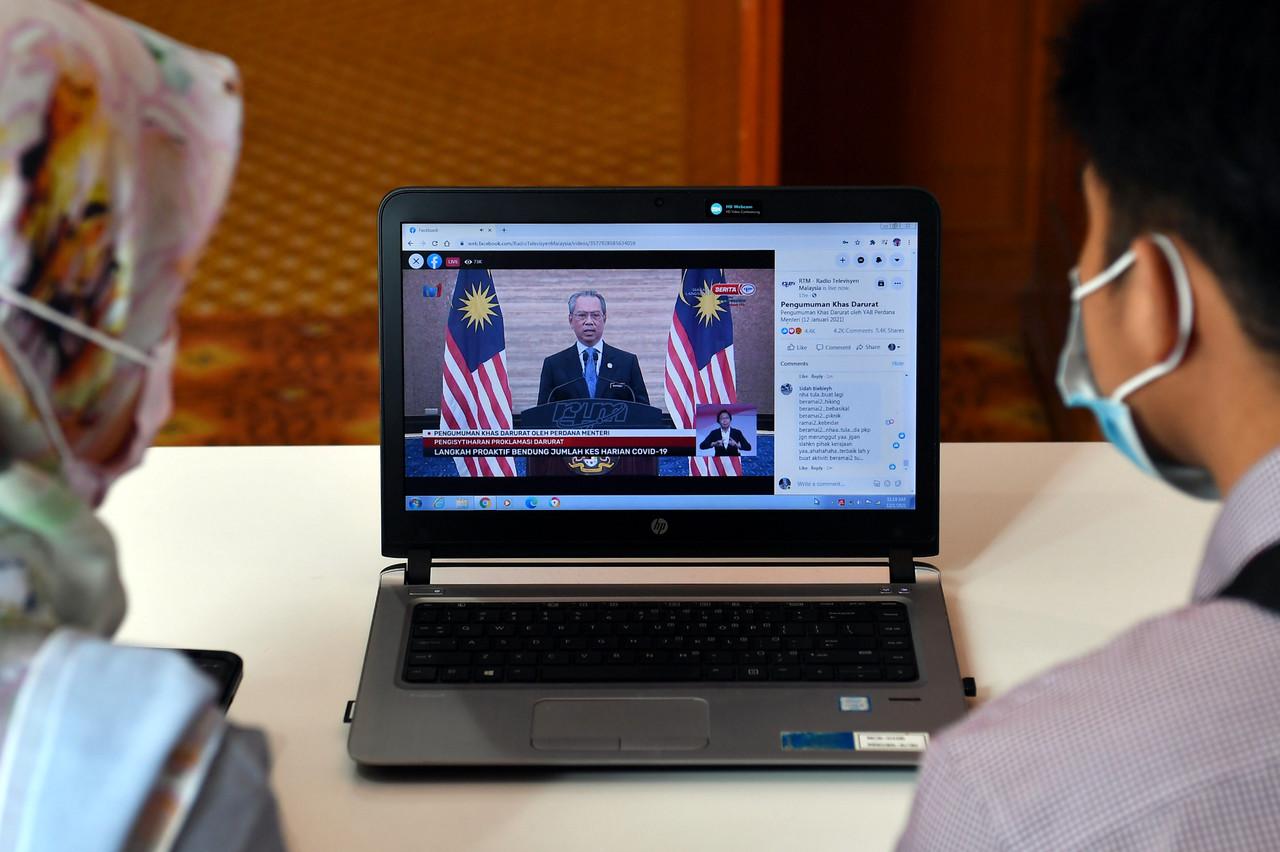Powers under emergency rule could benefit everyone, say analysts
A 'forced moratorium' and expansion of existing initiatives such as the i-Sinar programme could work in favour of those struggling to make ends meet.
Just In
Several analysts say the proclamation of a Covid-19 emergency this week is good news for more than just frontliners battling the pandemic, as it could help ease the economic hardships faced by the people if the wide-ranging powers in the hands of the authorities are put to good use.
Haniff Khatri Abdulla said from a legal-economic standpoint, the state of emergency would allow the government to use its constitutional clout to enact laws compelling financial institutions to suspend loan repayments.
He said this way, not only would banks and financial institutions have to suspend loan agreement terms to help borrowers facing the worst economic crisis in recent history, it would also prevent them from seeking bankruptcy proceedings against defaulters who have no means of repaying their loans following a loss of income.
Haniff said this would be a form of “forced moratorium” to benefit the people.
“To me, this will show the people the blessings of the emergency proclaimed by the Agong. It will make them happy about the declaration,” the senior lawyer, a critic of the government who frequently gives his opinion on legal matters, told MalaysiaNow.
Under Article 150(7), laws enacted during an emergency cannot be challenged in court.
Prime Minister Muhyiddin Yassin, in detailing the state of emergency this week, assured that a civilian government would remain and daily activities would not disrupted. He also said the authorities could enact tough laws during the period running up to Aug 1, with the aim of battling the impact of the pandemic.
Under Article 150(7), laws enacted during an emergency cannot be challenged in court.
Haniff said such laws could be enacted without going through the parliamentary process.
“So once the Covid-19 crisis is over, people will have some breathing space to earn a livelihood before they find jobs to stabilise their finances and resume their loan instalments,” he said.
Economist Madeline Berma agreed with the suggestion.
She said beyond compelling banks to grant moratoriums to borrowers, the government could also come up with other emergency enactments to put more cash in people’s hands, such as opening up the EPF’s i-Sinar programme to all contributors.
The i-Sinar is a facility announced by the government last November which allows some eight million contributors to withdraw money from Account 1 of their EPF if they can prove a loss of income.
Madeline said health and economy go hand in hand.
“To flatten the Covid-19 curve, the economy must be strengthened. And as long as Covid-19 is not flattened, our economy will suffer.
“So to the question of whether the emergency is good for the economy, my answer is yes,” Madeline told MalaysiaNow.
Critics have attacked the government for resorting to emergency rule, saying it will damage Malaysia’s reputation among investors.
Yesterday, opposition leader Anwar Ibrahim launched a petition campaign to get MPs to write to the palace urging the Agong to revoke the emergency proclamation.
“The government can give 100% attention to managing the pandemic now that the political pressure has eased a bit.”
But analyst Azmi Hassan said using the wide powers to enact laws to benefit the people would reverse the negative connotations attached to emergency rule.
He said the greatest benefit of emergency rule lies in the fact that it prevents snap polls.
“The government can give 100% attention to managing the pandemic now that the political pressure has eased a bit,” Azmi told MalaysiaNow.
Threats of a pandemic-season general election were removed, at least until Aug 1, with the emergency proclamation.
Muhyiddin had assured that he would call for a general election as soon as the special bipartisan emergency committee was satisfied that the Covid-19 situation is under control.
“At that time, it is up to the people to decide which government is qualified to govern this country and protect your welfare. This is a commitment that I shall fulfil,” the prime minister had said.
Subscribe to our newsletter
To be updated with all the latest news and analyses daily.
